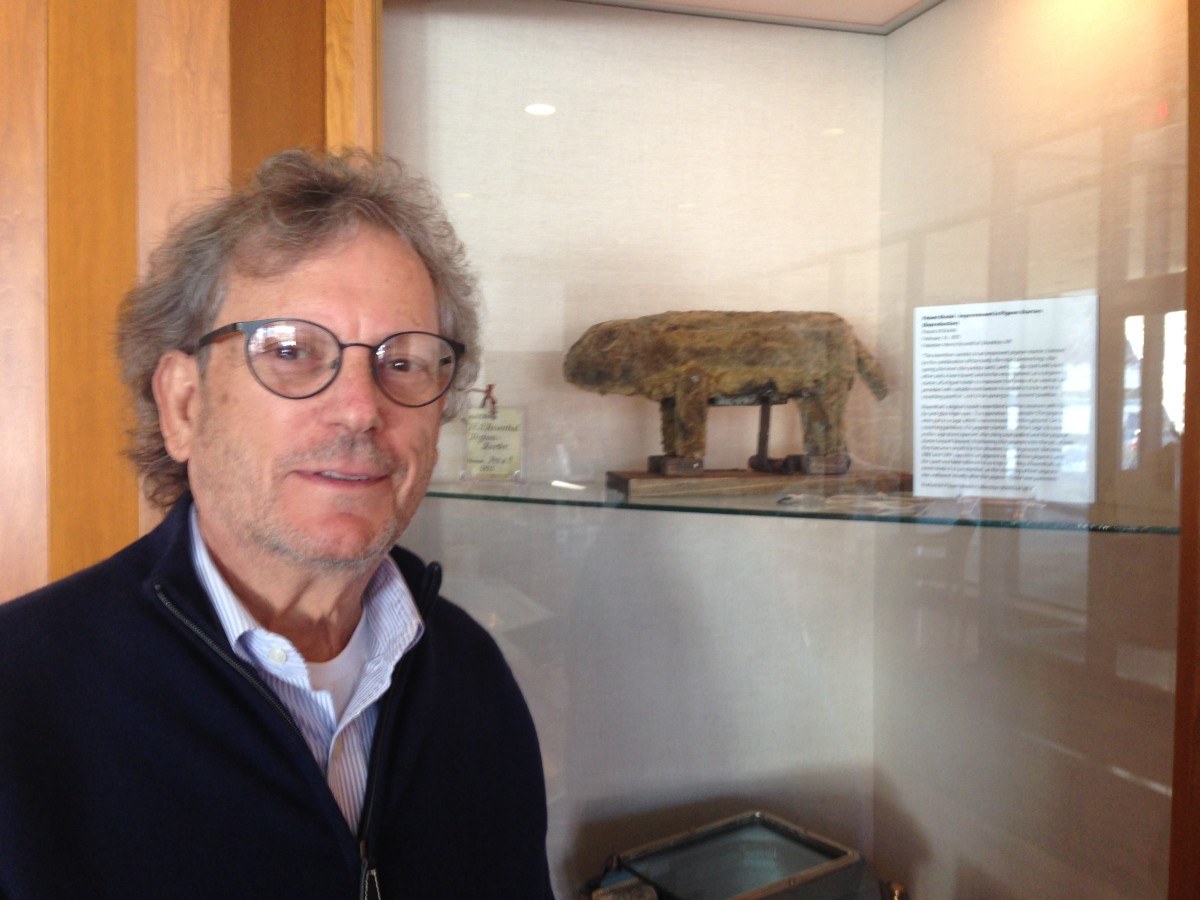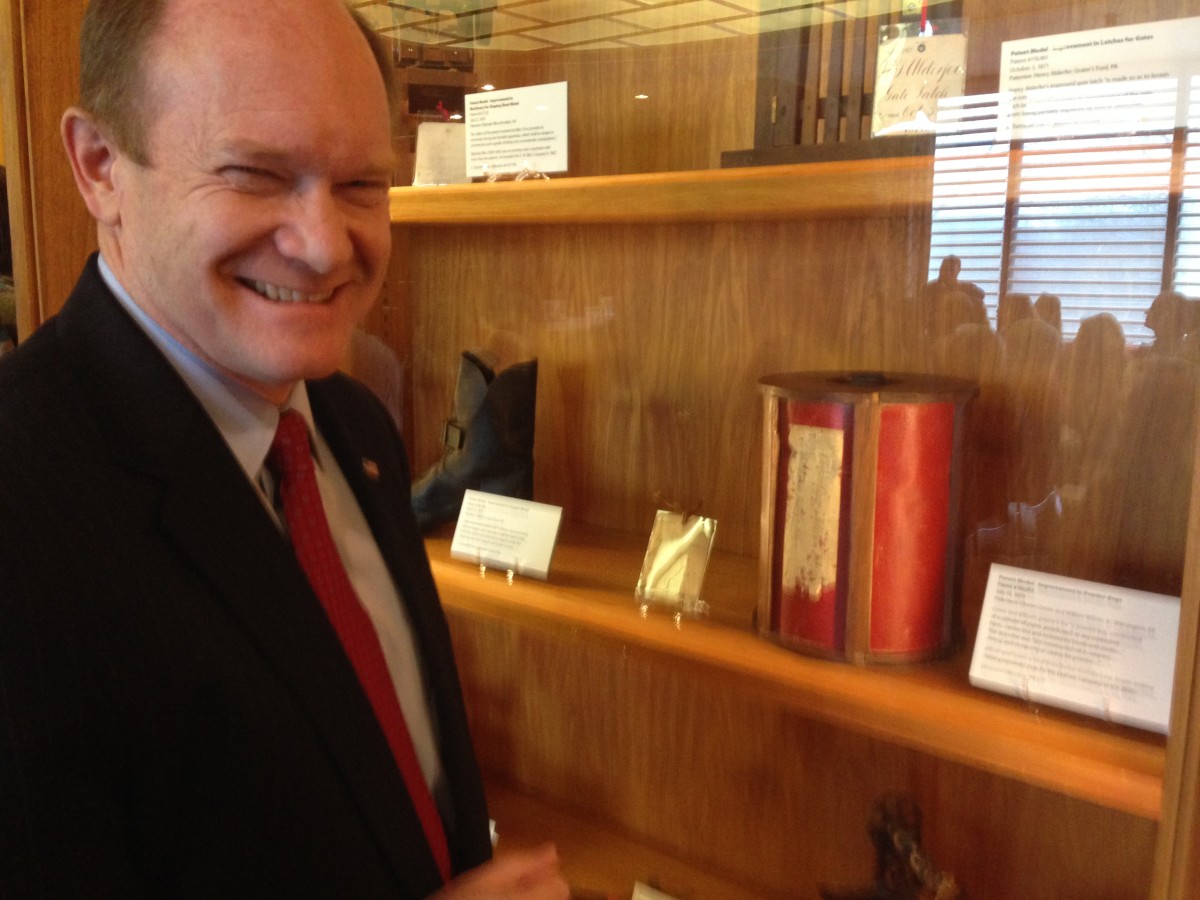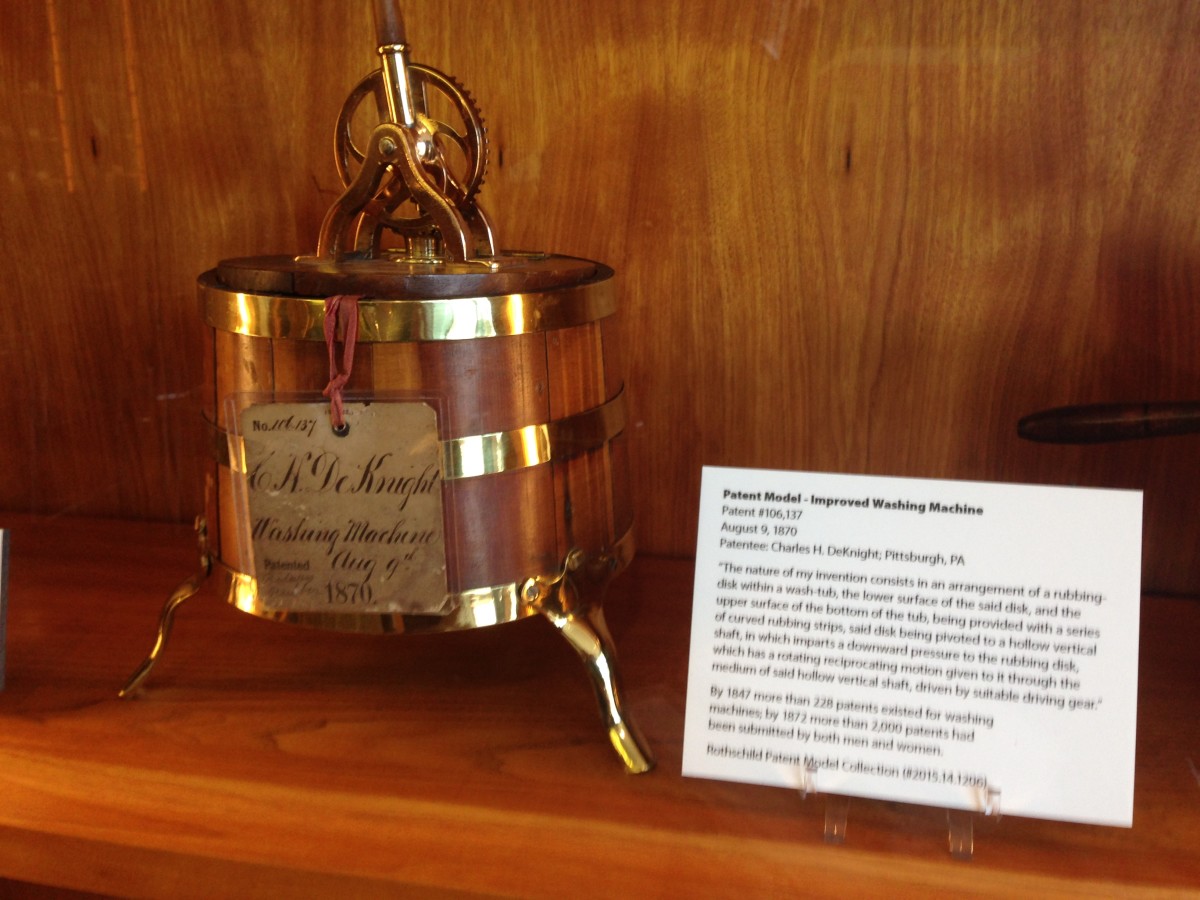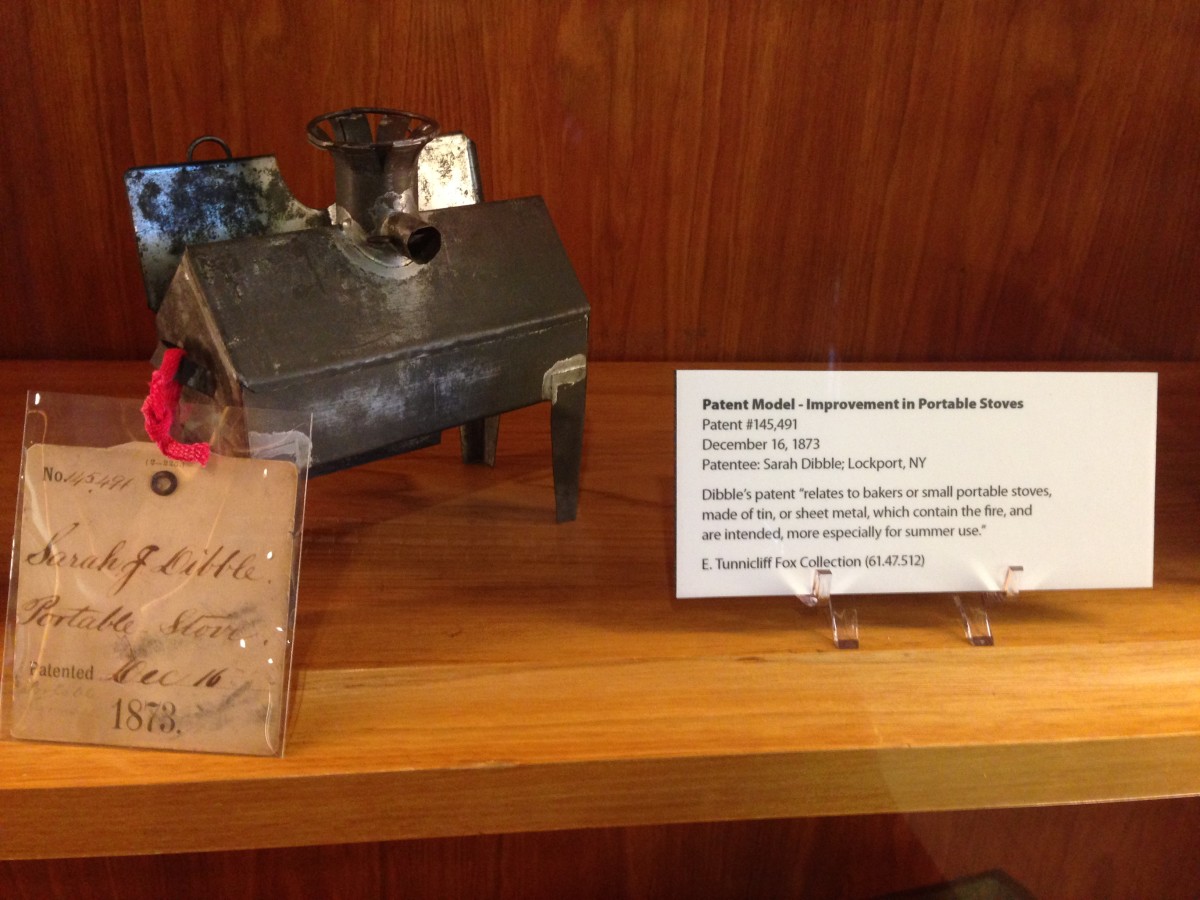In 1907, the folks at the U.S. Patent Model Office threw up their hands and yelled, “Enough!”
Or something like that.
For 34 years prior, inventors had been required to submit a miniature prototype of their invention as part of their patent applications. But Americans had been so prolific in their ideas and applications that the patent office simply ran out of room.
Fast forward to today: The Smithsonian owns about 6,000 of those models, which is the biggest collection in the country. And now, the Hagley Museum announced Friday, it has become second only to the Smithsonian, having just added 4,101 models to its collection for a grand total of 4,971.
It’s all because Alan and Ann Rothschild, a couple from Cazenovia, N.Y., have given Hagley what had been the largest private collection of patent models.

Alan Rothschild addresses the crowd at Hagley Museum who came to learn about the big announcement. (Photo by Lindsay Podraza)
Alan Rothschild, who was at the announcement at Hagley Friday, said he’s thrilled to have found a home for the models where the public can enjoy and learn from them.
“I never believed they belonged in a private collection,” he said. “I’ve only been a caretaker for them for the past 20-plus years.”
David Cole, Jr., Hagley’s executive director, said it’ll take at least a year to unpack and catalogue each model. Plans are in the works, he said, to rejuvenate the visitors’ center with a permanent display that would routinely cycle through models.
Traveling shows, exhibits in other cities, lectures, tours and educational kids’ programs are also on the table, he said.
The newly-acquired models range from ideas that never quite panned out — including a piano keyboard that morphs into a Murphy bed and a metal belt with cranks and loops to help the wearer jump rope — to the genius of renowned inventors, like an Eli Whitney rifle stock, a George Corliss steam engine, a Hiram Maxim machine gun and a Melville Bissell carpet sweeper.
One of Rothschild’s favorites is the 1875 pigeon-starter model, by Henry Rosenthal. For sport, hunters used to keep pigeons in traps and then would release them and try to shoot as many as possible out of the sky. Trouble was, the pigeons often needed prodding out of the cages. Rosenthal built a contraption that looks a bit like a muskrat and when a string was pulled, it would spring forward toward the pigeons and scare them into the air. The invention was a hit until pigeon-hunting was banned, but it’s where we get the terms “clay pigeons” and “trap-shooting,” which, by the way, Rothschild is a fan of himself.

Alan Rothschild stands next to one of his favorite patent models, the pigeon-starter. (Photo by Lindsay Podraza)
Coincidentally, Zach Phillips, the director of Wilmington film-production company The Kitchen, once photographed some of Rothschild’s patent models when Phillips was working at a photography studio in Syracuse.
He’s interested in making a documentary about American innovation that would feature Rothschild, whom he ended up having lunch with after photographing his models.
“It’s incredibly nerdy, but I really think we should get more people into this,” Phillips said in reference to the new Hagley patent models. “I really hope … they bring back the sort of enthusiasm around invention that I think made this area, and made a lot of what we associate with being American.”
And aside from being records of people attempting to solve problems, Phillips said, the models are also works of art. Cole said that most inventors in the nineteenth century hired German-immigrant craftsmen to create them.
The models from Rothschild have changed hands quite a few times:
- 1925: Congress was tired of storing models and auctioned them off to Sir Henry Wellcome, who was a cofounder of what is today GlaxoSmithKline. He reportedly wanted to build a museum for them, but he died during the Great Depression.
- 1936: Broadway producer Crosby Gaige bought them from Wellcome’s estate, then sold them to businessmen in New York who called themselves American Patent Models, Inc. They soon went bankrupt.
- 1939: Auctioneer O. Rundle Gilbert acquired them (at an auction, of course), sold thousands and kept others at his Garrison-on-the-Hudson home in New York.
- 1979: Aerospace engineer Cliff Peterson bought the remaining models (800 boxes’ worth) from Gilbert.
- 1994: Enter Rothschild.
He was at an antiques show when he first saw some old patent models. “I fell in love with them that day,” he said. By 1998, he had bought 4,000 models from Peterson’s collection.
Hagley’s acquisition of the models is a big win for Delaware, said U.S. Sen. Chris Coons (D-Del.), a big proponent of patent reform. He’ll borrow a few patent models in his office to show off, too.
Coons, Cole and Rothschild all said that they hope the models can help spark longterm economic growth in the state, which could happen if inspiration from the models leads to new innovation.
“It’s really symbolic of who we are as a nation of inventors,” Cole said. “We’re terribly excited about this and what he means for the Delaware community.”
Join the conversation!
Find news, events, jobs and people who share your interests on Technical.ly's open community Slack

Delaware daily roundup: Equity Action Summit video; DE Senate debates wind energy; Hydrogen hub listening sessions

Delaware daily roundup: Early-stage loan help; Jobless rate drops below 4%; $700k grant for industrial park

Delaware daily roundup: Greentech terms to know post-Earth Day; generative AI's energy costs; anti-AI deepfake legislation




